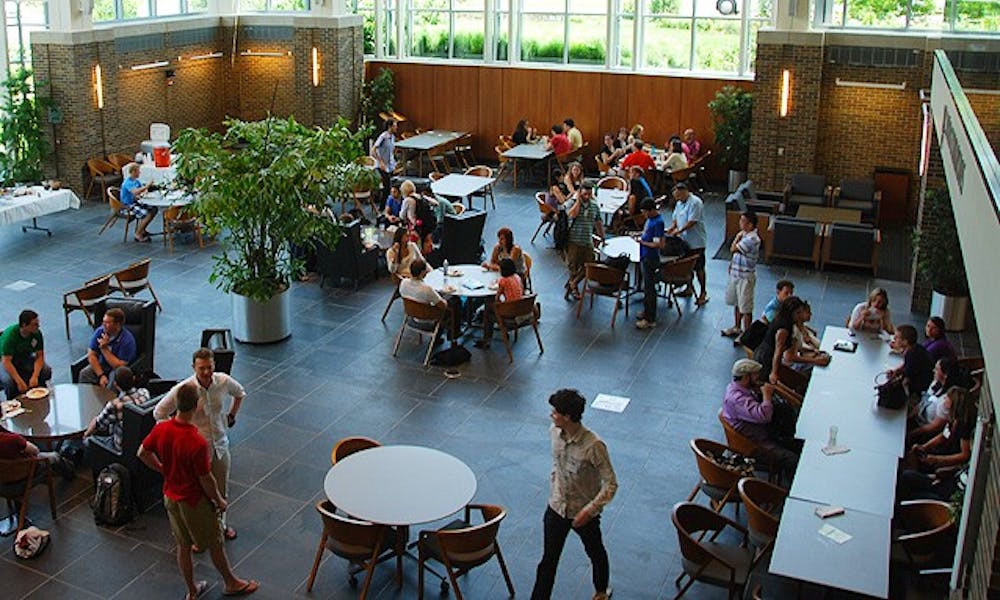For Duke law students who do not secure a job after graduation, the Bridge to Practice program can provide a solution.
Since its creation in 2008, the program has helped students at the School of Law pursue careers after graduation, especially in public interest and government agencies, said Melinda Vaughn, executive director of communications for the law school.
“As the economy has faltered, more students have needed assistance,” Vaughn said.
For Duke law students who do not secure a job after graduation, the Bridge to Practice program can provide a solution.
The program, which awards financial fellowships to students for between eight and 12 weeks of full-time work, is an effort to achieve of the law school’s goal to employ all of its graduates for at least nine months after graduation. The law school has met that goal five times in the past six years, according to an April news release. In addition, the public interest sector does not usually hire lawyers until they pass the bar exam, which most students do not achieve until after graduation.
Vaughn said the program’s funding comes from alumni and others who hope to help graduates secure jobs. She added that the process has been successful so far, noting that employers have given positive feedback about the program.
As students prepare for full-time employment in the program, they acquire experience and skills, Vaughn said. As the economy improves, she added that she hopes to see the number of students participating in the program decrease. There were nine participants in 2008 and 15 in 2009.
“I was an intern at the Durham County District Attorney’s office the semester before graduating, but they didn’t have an open position for me after I was done,” said Kyle Pousson, Law ’08.
Pousson explained that the Bridge to Practice program allowed him to continue his work in the district attorney’s office and get the job he wanted when it opened up. He added that the opportunity gave him chances to practice in the courtroom and review cases under a supervisor.
“I loved the program, it was perfect for me,” Pousson said. “It gave me the flexibility to work for what I wanted to, and eventually get the job and help me through financial means while I was waiting to be hired.”
Duke is not the only law school helping its graduates find employment. The University of Texas at Austin School of Law also established a program that offers stipends for recent graduates to work in non-paying internships. Additionally, the Southern Methodist University Dedman School of Law launched a program called “Test Drive,” which pays employers to hire its recent graduates, according to the Above the Law blog.
A significant advantage of the Bridge to Practice program is that it lets students work with large public interest legal organizations, said Michael Hiatt, Law ’09, who now works as an associate attorney for Earthjustice, a public interest law firm that protects the environment. Hiatt noted that his work at the Environmental Defense Fund during the Bridge to Practice program helped him receive later job offerings.
“The hiring process for public interest organizations differs greatly from the typical hiring process for law firms, where students usually receive job offers prior to graduation,” Hiatt said. “Public interest organizations typically only hire attorneys with prior experience practicing law, and the Bridge fellowship helps provide that experience.”
Hiatt added that he hopes to see the Bridge to Practice program receive more funding and expand the length of the fellowship.
“With additional funding, the program could be expanded and would provide an important measure to further Duke law’s commitment to encourage its graduates to use the skills and knowledge they gain at Duke law for a career of public service,” Hiatt said.
Get The Chronicle straight to your inbox
Sign up for our weekly newsletter. Cancel at any time.

